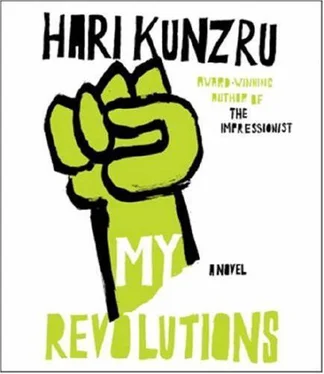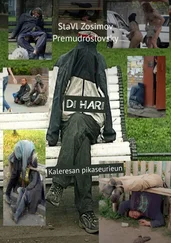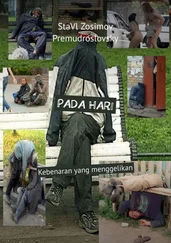The speakers harangued us in relays from a platform in front of the National Gallery, approaching the mike against a backdrop of fluttering North Vietnamese flags. Someone let off a smoke bomb and an orange haze drifted across the fountains, licking at the feet of the lions guarding the base of Nelson’s Column. The smoke was a reminder of why we were there, of the horror being played out in jungles and rice paddies on the other side of the world. The speakers linked this to other things: Aden, devaluation. They told us Britain was on its knees. They told us the system was tottering.
My name then was Chris Carver. I’d grown up in Ruislip, in the commuter belt of west London. I’d done well at grammar school, so well that even my father, a man whose emotions got lost at the bottom of the North Atlantic on some wartime winter convoy, had evinced a little pride in my LSE place. In stale sixties Britain, university meant upward mobility. My family were proud members of what is still termed, with the disgusting precision of English snobbery, the lower middle class . When he heard the news over the breakfast table, Dad, who owned a shop selling electrical goods, had cracked a smile behind his copy of the Express , not because he cared about knowledge or particularly respected those who possessed the education he lacked. Quite the contrary: he always made his feelings very clear about eggheads, spewers of hot air. It wasn’t even about money, not really. He smiled because his son was on the rise, edging a little closer to the high-walled place occupied by the governors, the top people. And, of course, because my ability to pass exams reflected well on him. “Blood,” he’d said, gesturing at me complacently with a marmalade-smeared slice of toast, “will out.”
Standing in the crowd that morning with my fist in the air, there was one thing I was certain of: I’d had enough of my father’s world, enough of the idea that life was a scramble to the top over the heads of those poorer, slower, or weaker than yourself. I hadn’t spoken to either of my parents since the previous Christmas, when I’d announced over the lunch table that I was a Communist. My
mother, numbed by pills and her own lack of expectation, had been incredulous. To her it was simply nonsensical, as if I’d just told her I was a Negro or a circus clown. Communism was for Glasgow dockers and bearded Jews. People like us didn’t just turn that way. But my father understood. He knew I was telling him to get fucked.
For my dad, disrespect was always a threat, not just to himself but to the wider world, the nation, whatever it was he thought he’d fought a war for. Where would I be if he hadn’t known how to obey an order in i94o? That was his trump card. His war, my warlessness. I think he’d have found it easier if I’d told him I was homosexual; then at least he could have submitted me to the appropriate authorities — the psychiatrist or the vicar. Something could have been done.
Even now I hate remembering the gloomy little Oedipal scene that played out in our front room, the four of us, Mum and Dad, me and my older brother Brian, wearing paper crowns from cheap Christmas crackers, the kind that left slight stains of color on your forehead when you took them off. I talked into the silence, trying everything I could think of to get a response, a sign of life. I told my parents the ruling class were scum, fattened by nine hundred years of greed and oppression. A cough. The clink of cutlery on the second-best china. Warmongering bastards, burning the skin off little children. Dad segmenting a boiled potato. “Christopher,” he said eventually, “if this is typical of what they’re teaching you—” I knew the second part and repeated it along with him—“then I don’t know why I’m paying my taxes.” My mother asked if I wanted more gravy. I pushed my chair back and left the house.
So Trafalgar Square was part of a new life, a project of self-invention. I’d come on the march with my friends, who were all members of something called the Vietnam Action Group, one of a dozen different councils and committees that existed at my university, all dedicated with varying degrees of clarity to the proposition that ending America’s war in Vietnam was our special duty. My own anger about the war rendered everything else
disgusting. Every small pleasure was bleached out by the knowledge that elsewhere such horror existed.
My friends loved to argue. They loved to talk, and though I had a shelf of Marcuse and Marx and knew the jargon as well as they did, their talk had begun to seem ineffectual, masturbatory. In meetings and teach-ins I was the first to stand up and call for action. I was hopeful — this was how young I was — that I might just be the one, that it might be given to me, Chris Carver, to smash up the old world and build something new.
Beside us in the crowd that morning, a boy with a scrap of bedsheet tied around his head knelt down and doused an American flag in lighter fluid. He hunched over, shielding it with his parka as he tried to light a match. I knelt down beside him and flicked open my Zippo. The flag caught and we smiled at each other. He raised it up on its pole, shook it a few times. Around us, several people cheered. Comrade Bob, a pol. sci. postgrad and orthodox CP member who’d only reluctantly deviated from his position that the march was recklessly adventurist, tugged urgently on my sleeve. There was movement nearby, angry voices. A little knot of blue helmets was clearing a path toward us. I wanted to stay and confront them, but my friends were already moving away. Reluctantly I went along, craning my neck to get a glimpse of the boy with the headband. Some kind of scuffle was breaking out; the charred flag wobbled wildly on its stick. People booed and hissed.
As we pushed through the crowd, the others chattered excitedly, patting me on the back and puffing up their chests like real revolutionaries. Alan in his new Carnaby Street floral shirt, Bob trying to relight his pipe. An American news reporter thrust a microphone at Ginger Ken, asking him sarcastically why we were there. Ken fingered his glasses and talked at a whirring camera about the Tet offensive and Imperialism and the need to stand together in solidarity with the people of the third world. The reporter, a small wiry man with a prominent nose and a flat-topped scrub of sandy hair, suggested that “all this,” meaning the march, was “just a substitute
for sorting out your problems closer to home.” Ken, blindsided, couldn’t think of anything to say and the newsman pressed home his advantage: “Isn’t it easier to criticize America than to do something about injustice here?”
I interrupted, trying to explain that it was all connected, that the differences between the Viet Cong and poor blacks in Mississippi and factory workers in Bradford were artificial, but the reporter had his footage of Ken failing to answer and signaled for the cameraman to cut. I was outraged: I felt we’d been duped. Evidently I wasn’t the only one to feel angry. As Flat-top turned away, rivulets of spit ran down the back of his jacket.
When the march moved off, we found ourselves near the front, behind a phalanx of German SDSers who were wearing helmets and jogging along in formation, much to the amusement of the ragbag of freaks around them. My friends were snickering too, but I was impressed by the Germans’ organization, their seriousness. Most people were treating the march like a bit of fun, a day out: a guy in a cloak and a cardboard wizard’s hat capered around, casting spells on LBJ; some street-theater types were carrying a coffin. But there was an edge to the atmosphere. A group of Scots, marching under red-and-black anarchist banners, cat called and shouted insults at the police lining the route. Fucking pigs! Fucking Fascists! One or two people were wearing helmets, or had covered their faces with scarves. We made our way down Oxford Street, watched by Mr. and Mrs. Average: center parting, matching bag and hat. You could tell one or two of them thought it was VE Day or something, so we called out to them to join us. Yes, you, sir, you at the back! We’re having a revolution. Why, right now, of course. Come and join in!
Читать дальше












